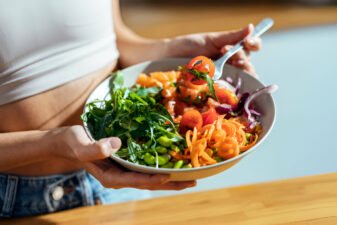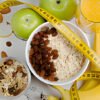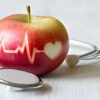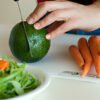About 50-70 percent of the human body is composed of water. The exact amount of bodily water varies according to age and the proportion of muscle-to-fat (muscle contains more water than fat.) Although water contains no calories and may have no nutrients, it is essential for life. We can survive for weeks without food, but only a matter of days without water. Because we do not store excess water, we must ensure that our daily diet contains a sufficient supply to maintain adequate health. It’s extremely difficult to take in too much water. If we drink too much, our body simply adjusts by increasing the amount of liquid we urinate. However, if our water level inside our body falls too low, we experience several symptoms that warn us we may be dehydrating. The principal symptom is thirst, a reaction influenced by a group of nerve cells located in the hypothalamus, located at the base of the brain.
Effect Of Water On Weight Gain And Weight Loss
Because the human body contains so much water, rising or falling levels may cause an equal increase or decrease in our weight. For example, water retention (sometimes called edema or oedema) with accompanying weight gain, is a common symptom of PMS and Menopause. While a very low carbohydrate diet (eg. Atkins Diet) typically leads to a loss of water (because carbs bind with water) leading to a rapid initial loss of weight. Weight loss is also a common symptom of dehydration.
How Much Water Do You Really Need To Drink? Latest Official Guidelines on Water Intake
According to the Institute of Medicine’s Food and Nutrition Board in their recent sixth report (February 2004) concerning water intake and electrolyte nutrients:
1. The vast majority of healthy people adequately meet their daily hydration and fluid intake needs by letting thirst be their guide. As a general guide, the Food and Nutrition Board set general recommendations for women at approximately 2.7 liters (about 8 glasses) of total water – from all beverages and foods – each day, and men an average of approximately 3.7 liters (about 12 glasses) of total water.
Note: American women already average 9 cups of water a day from all beverages combined, and American men, 13 cups.
2. About 80 percent of people’s total water intake comes from drinking water and beverages – including caffeinated beverages – and the other 20 percent is derived from food.
3. Prolonged physical activity and/or heat exposure increases water loss and thus increases daily fluid needs.
4. The Institute of Medicine’s Food and Nutrition Board also stated that it is a myth that coffee and (moderate consumption of) alcoholic beverages are dehydrating. Caffeinated beverages contribute to daily total water intake, in the same way as non-caffeinated beverages.
What These Water Intake Guidelines Mean
Firstly, fluid intake is very important, and extra fluids are necessary in hot sun or during and after prolonged exercise, to prevent dehydration.
Secondly, if you feel thirsty, chances are you need to drink something (err, not beer or a large Jack Daniels!). But if you don’t feel thirsty, chances are you don’t need to drink anything. On a daily basis people get sufficient water from normal drinking behavior, such as drinking beverages at meals and in other social situations, and by letting their thirst guide them.
Thirdly, water or other liquids, are not the only source of fluids. Foods, like fruits and vegetables, are also important sources. (See below for more details about water content of foods).
Health Benefits of Water
Although water contains no calories and may contain no micronutrients, it is an indispensable aid to digestion, nutrient absorption and waste-elimination. It also helps regulate circulation, body temperature and a host of other biochemical reactions. Water lubricates joints and maintains healthy skin. It’s worth remembering that we can exist without food for months, but without water for only a few days.
Fluid Intake From Water And Food
We don’t store water in the way we store energy in the form of body fat, so we need a new supply each day. Every day on average our body loses the equivalent of 6-12 cups of water, which must be replaced. The digestion and metabolism of food typically gives us about 15 percent of our water needs. Our body converts part of our food into hydrogen and combines this with oxygen in the air we breathe to form water. The remaining 85 percent comes from water in our diet. As a very rough guide, we need to eat/drink the equivalent of 8 x 10-ounce glasses of water. But we don’t necessarily need to take in this fluid in the form of drinking water. Eating water-containing food is fine, too. Here are some common and not-so-common examples:
– Most fruits are largely composed of water.
– Liquids like milk and fruit juices contain plenty of water.
– Vegetables are rich in water.
– A hamburger is 50 percent water.
– Swiss cheese is 38 percent water.
– Regular hard bagels are almost 30 percent water.
Note: A turkey sandwich made with Swiss cheese, lettuce, and tomato on whole-wheat bread contains almost a half-cup of water, while a tossed salad with vinaigrette dressing contains about a full cup.
What Type Of Water is Best to Drink?
What type of water should we drink? For optimum health, experts recommend clean, spring water, or filtered water, and some experts advise against drinking tap water, fluoridated or distilled water. For health reasons, some experts advise us all to check the safety of our tap water supply, in order to ensure it is free from heavy metals, bacteria and other contaminants.











